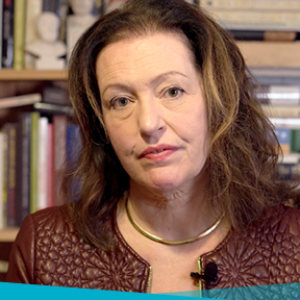
4 days ago
Edith Hall - What Aristotle can teach us about positive emotions
Edith Hall, Professor of Classics at Durham University, examines Aristotle’s approach to emotions and how we might understand them.
About Edith Hall
"Professor of Classics at Durham University and Fellow of the British Academy.
I’m a classicist, originally focused on Ancient Greek theatre. I’ve spent most of my career blending data from ancient Greek literature with sociology, history, political theory and philosophy. I like to write about the ancient world in its holistic form, relating individuals and their ideas to important cultural, historical and political moments."
Key Points
• Aristotle considered emotions to be positive, contrary to other schools of thought that came before and after, and believed they would lead us to good.
• For every emotion, passion or appetite, he said there was a “middle way”, or a correct amount of each, and that even emotions normally considered negative could be channelled for something beneficial.
• Aristotle theorised that there are three types of friendships, and problems arise in relationships when we put people in the wrong category.
Emotions are to be encouraged
The biggest change that Aristotle introduced into ancient ethics was quite a psychological one, which was that emotions are intrinsically to be encouraged and are good things. Now this really does mark him out against almost all the other ancient philosophical schools who all have similar goals of pursuing happiness, usually through virtue, ethics, trying to be a good person and linking those together. However, Plato thought emotion was an absolute demon and a beast, and we had to bind it down in our soul, transcend emotion entirely and replace it with pure reason.
No comments yet. Be the first to say something!